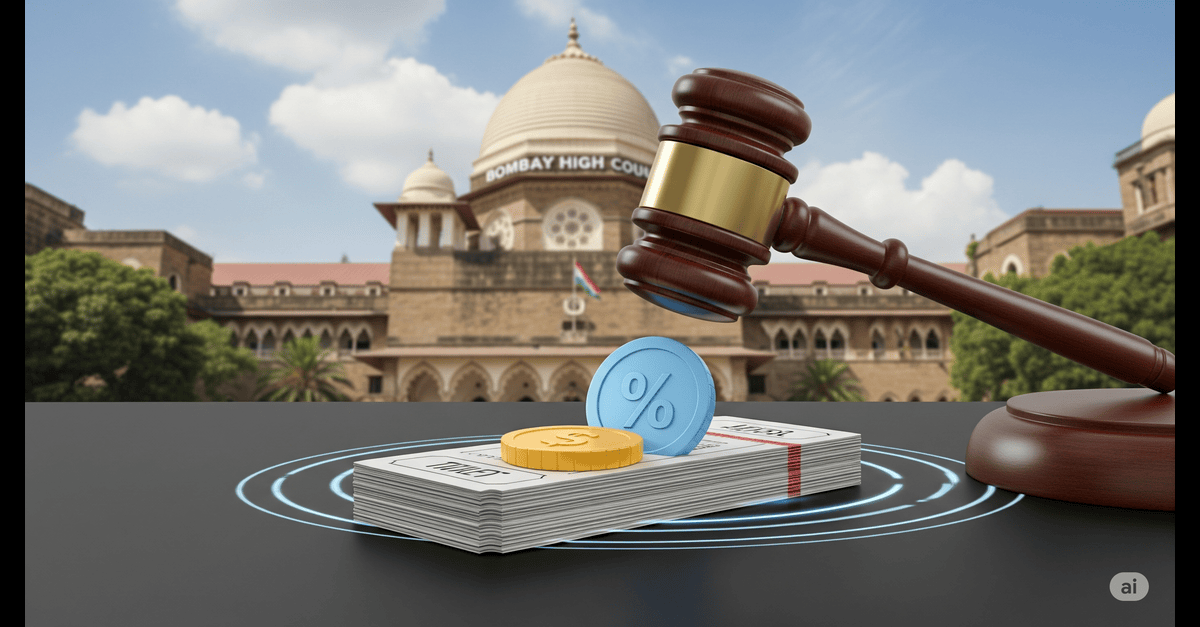Case Name: FICCI v. State of Maharashtra
Case Number: Writ Petition No.1813 of 2016 and Writ Petition No.1689 of 2015
Date of Judgment: 6 August 2025
Quorum: Coram consisting of Justices M.S. Sonak and Jitendra Jain
Facts
The Federation of Indian Chambers of Commerce and Industry (FICCI) Multiplex Association challenged the Maharashtra Act No. XLII of 2014, which amended Section 2(b) of the Maharashtra Entertainments Duty Act, 1923 (MED Act). The amendment included convenience fees for online ticket booking as part of “payment for admission” for entertainment duty purposes, exempting only fees up to Rs. 10 per ticket. Petitioners argued that such convenience fees were a separate service already subject to service tax under the Finance Act, 1994, and therefore outside the State’s taxing power. The State contended that these fees were part of admission cost and hence taxable under Entry 62 of the State List.
Issues
Whether including convenience fees in the definition of payment for admission is constitutionally valid and within State legislative competence.
Whether these fees are independent of the service or instead part of the entertainments on which duty is chargeable.
Whether the amendment is an arbitrary or colourable exercise of power of legislation.
Legal Provisions
Maharashtra Entertainments Duty Act, 1923 – Section 2(a), 2(b), 3
Finance Act, 1994, service tax provisions
Article 246, Constitution of India
Entry 62, List II, Seventh Schedule, state power to impose entertainments tax
Relevant case law on the legislative competence and taxing measures
Arguments
Petitioners:
Central law already imposed service tax on any convenience fees which double the
State taxing certainly menaces the legislative competence.
Online booking is an entirely separate service and is not the entertainments themselves.
Amending the definition clause without amending the charging section is ultra vires.
Convenience fees are optional and unrelated to admission.
The amendment’s retrospective nature and lack of collection mechanism make it unreasonable and arbitrary.
Respondents:
Entertainment duty covers all charges linked to admission; convenience fees are part of the cost to attend.
Online booking fees are a condition precedent for entry when using that booking mode.
The amendment changes the measure of tax, not its nature, and is within State power.
Legislative discretion allows inclusion of charges in tax measure to curb excessive fees.
Analysis
The Court noted that the MED Act taxes “payment for admission,” which under Section 2(b)(iv) broadly includes any payment connected to entertainment attendance. Online booking fees had a direct nexus to admission, as ticket purchase completion — and therefore entry — was contingent upon payment of these charges when booking online.
By applying an exemption for fees up to Rs. 10 and taxing amounts greater than Rs. 10, the amendment only changed the measure of tax and did not create the new tax. Considering the pith and substance of the measure, the Court ruled that the amendment was a matter within the jurisdiction of the State under Entry 62. Significantly, a service tax and entertainment duty were separate and distinct levies based on different aspects of the transaction: the former on the provision of service and the latter on the enjoyment of entertainment. The Court also stated that the allegations of “arbitrariness” referred to in Karnataka was not applicable.
Judgment
The High Court upheld the constitutionality and validity of the MED Act amendment proviso relating to convenience fees for online ticket booking. It held:
The amendment falls within the State’s legislative competence.
Convenience fees above Rs. 10 per ticket constitute part of admission payment and are subject to entertainment duty.
The amendment changes the measure of tax legitimately, not levying a new tax on a different activity.
The interim relief provided to the petitioners was cancelled, and the petitioners’ petitions were dismissed.
Conclusion
The judgment is in favor of the State of Maharashtra which upholds the claims made by the State that when the convenience fee charged for booking an online ticket which exceeds Rupees 10, is a part of the payment made for admission, and is thereby liable to pay entertainment duty under the MED Act. The judgment has supported that the convenience fee is inherently linked to admission to entertainment in conjunction with the original taxable service, and it has a different tax nature but the same venue. The judgment supports that the State has wide powers to tax entertainment, is in compliance with a fiscal policy that is aligned with technology in ticketing to combat undue enrichment or exploitation of the customer in the form of excessive convenience charges which are being charged for online ticketing.
“PRIME LEGAL is a full-service law firm that has won a National Award and has more than 20 years of experience in an array of sectors and practice areas. Prime legal falls into the category of best law firm, best lawyer, best family lawyer, best divorce lawyer, best divorce law firm, best criminal lawyer, best criminal law firm, best consumer lawyer, best civil lawyer.”
WRITTEN BY __ Kondala Phani Priya


